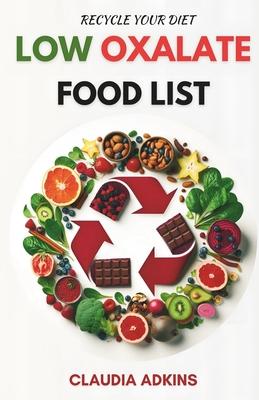If you're eating a healthy diet but still experiencing fatigue, gut issues, anxiety, inflammation, joint pain, or persistent symptoms, the issue might be high-oxalate foods like avocado, spinach, soy, sweet potatoes, and other seemingly super-healthy foods. Many people unknowingly consume these foods, which can lead to health problems such as kidney stones and other oxalate-related issues. It's time to take control of your health and understand how oxalates affect your well-being. What's Inside?
Comprehensive Food Listings: An extensive list of over 800 foods, drinks, and ingredients categorized by their oxalate content.
User-Friendly Format: Foods are listed in their respective food category for quick and easy reference.
Clear Oxalate Ratings: Each food item is rated based on its oxalate content according to sources:
- ✅ (Low Oxalate): Excellent choice.
- ⚠️ (Moderate Oxalate): Use sparingly.
- ❌ (High Oxalate): Avoid if possible.
- Identify Your Risk Level: If you have a high risk of kidney stones or other oxalate-related conditions, aim for foods with a rating of low oxalate ✅. If your risk is lower, you can occasionally enjoy foods rated Moderate Oxalate.
- Check Before You Eat: When at a restaurant, grocery store, or even a friend's house, use the alphabetical index (for print version) to quickly find the oxalate content of any food or drink.
- Plan Your Meals: Use the at-a-glance lists to plan low-oxalate meals for all occasions, ensuring a balanced and enjoyable diet without the worry of oxalate overload.
Remember!! Take this book everywhere and start your journey to better health. Understand your oxalate issues and manage them effectively with the "Low Oxalate Food List." Let's embark on this path to wellness together!
